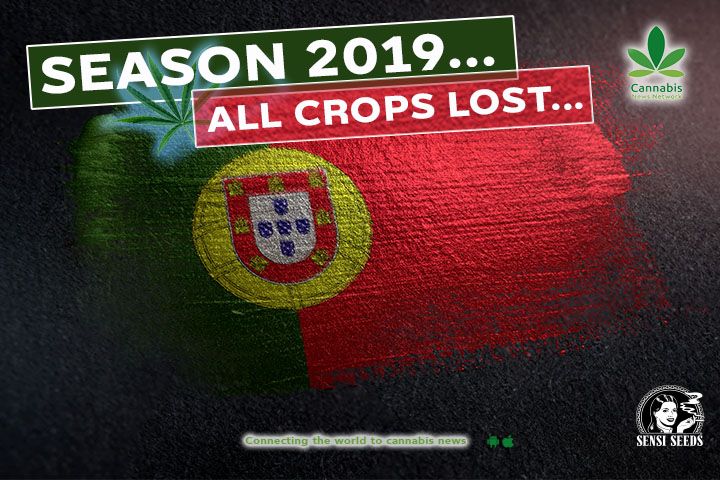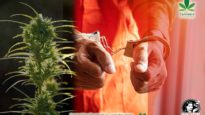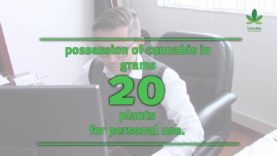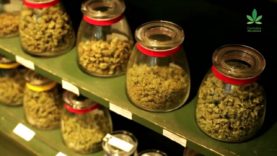Hemp farmers in Portugal: 2019 is a lost year.
Portuguese hemp farmers are giving up on the 2019 growing season due to continuing jurisdictional confusion between two government agencies over licensing.
The problem started when Portugal’s Ministry of Agriculture issued a clarification in January 2019 making all hemp related authorizations subject to review by INFARMED, the Portuguese Health Regulator that has authority over pharmaceutical products and controlled substances.
The clarification came in the wake of a new medical cannabis law approved in August 2018 that established rules up and down the sector value chain; regulations for medical cannabis addressed cultivation, production, extraction, and commercial manufacturing, as well as wholesale, distribution to pharmacies, import and export, transit and sales.
How the mess unfolded
In 2018 LUSICANNA (a cooperative of Portuguese hemp farmers and processors) and a number of other farmers grew hemp in Portugal without problems by obtaining a simple authorization from DGAV, indicating plot location, seed variety, and planting date. DGAV approved those applications following an inspection of the seed bags.
Check the full story: here

What are the reasons for the blockage of hemp in Portugal?
At this point, the situation is open to interpretation. A benign view of events would be, that the Secretary of State of Agriculture, Luís Medeiros Vieira, was sick for two months during the spring, but seems to be back on his feet. Another contributing factor could be simple incompetence on behalf of the regulatory bodies involves (DGAV, INFARMED and the Ministry of Agriculture). None of that would excuse their condescending behavior towards the hemp farmers and their plight, but it would at least be understandable.
However, in our dealing with the agencies we discerned a certain amount of discomfort and even fear on their part. This suggests another theory. Since medical Cannabis companies have been heavily favored by the Portuguese government, it is possible that they managed to influence the bureaucracy to blockage hemp. This is not such an unreasonable assumption when considering that Ângelo Correia, co-founder of the PSD and ex-Minister of internal affairs has 40% shares of TerraVerde (a medical Cannabis company from Israel) (Source dn.pt) or Jaime Gama, former president of the General Assembly is consultant to Tilray Portugal, a branch of a Canadian medical Cannabis company (Source: publico.pt). What would be the reason of connecting such ‘advocates’ with political connections to your business if not for those reasons? And given Portugal’s current state of affairs when it comes to corruption, the idea might not be too far fetched. The Portugal Corruption Report of GAN – an anti-corruption organization) states:
“While the country has made significant progress in the past decade, recurring corruption scandals involving high-level politicians, local administrators, and businesses abusing public funds have revealed that safeguards to counter corruption, and abuses of power have been somewhat inefficient in Portugal.” (Source ganintegrity.com)
But why should medical Cannabis industries have an interest in blocking industrial hemp? The explanation is simple. Conditions for the plant are good in Portugal, if not to say excellent. The medical Cannabis companies want to make as much money as possible by saving operation cost. The cheapest way to grow is in the field, outdoors. Why is that a problem with industrial hemp around? Because the industrial hemp could pollinate the medical crops, causing seeds to appear in their feminized crops, costing them money. Of course, the problem could be solved by growing in greenhouses with appropriate filters. This way hemp and medical Cannabis could coexist peacefully. Obviously, it would be cheaper to pull some strings in the back.
Rogue planting ‘an option’
Some hemp farmers are going ahead and putting crops in this spring. “They’re going around the law. It’s an option, but it will be difficult for them to sell those crops,” Jürgen Simon (president of Lusicanna) said.
He said his group may have no choice but to take the government to court. “We have 250 kilos of seed just sitting there,” he said. “We’re starting to calculate the losses.”
At least two major Canadian cannabis concerns are already operating in Portugal. In January this year, Canada’s ICC International Cannabis Corp. agreed to acquire 100% of Portugal’s Enigma Unipessoal Lda. And Ontario-based medical cannabis firm Tilray announced in 2017 a planned €20 million farming and processing operation after it claimed to have received approval to import and cultivate cannabis seeds and clones.
Sources:
- https://hemptoday.net
- https://www.lusicanna.com
- https://www.hempcollectiveportugal.com


























